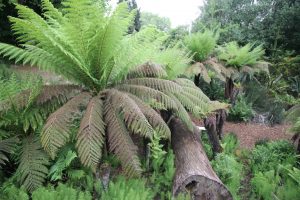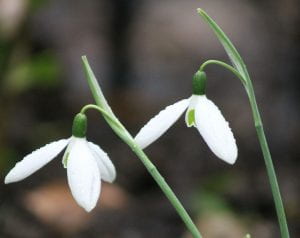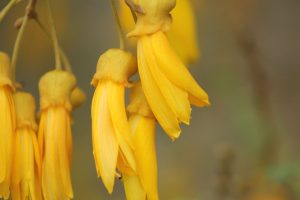By Andy Winfield

I may be biased, but plants are amazing! They tell us all we need to know, they feed us and can make us feel better in the mind and body, they can clothe us, make us warm and cool us down; they were here a long time before us and they’ll no doubt be here a long time after us. Plants are everywhere with thousands of stories to tell, the planet’s true survivors adapting to everything thrown at them; we could live to be three hundred years old and still discover new and bewildering ways that plants have found to exist. They are the dominant life form on earth making up 83% of all biomass; without them we are nothing, they literally give us the air that we breathe.
We humans, on the other hand, represent just 0.01% of biomass and have appointed ourselves as the overlords of planet earth (although cats may have something to say about that). It’s fair to say we haven’t been very good custodians to the remaining 99.99% of life, and where plants are concerned, we seem to do our very best to eradicate them if we can; on a large scale (deforestation), and small scale (tarmacked front garden, plastic grass back garden). But plants can offer us so much more.
 Take January; here we are at the beginning of 2020, it feels dark, cold and wet; but the signs are there that the ground is stirring itself for another growing year; snowdrops are flowering along with hellebores, daphne and witch hazel. Above in the bare tree branches, singing robins and cawing crows, Magnolia buds are preparing for March; below the leaves of last year’s growth are saturated with winter rain, spring bulbs under the ground are poised. There is always a feeling of growth and movement, a connection with plants is a connection with the seasons, the earth and a way to be ‘part’ of nature rather than ‘in’ nature.
Take January; here we are at the beginning of 2020, it feels dark, cold and wet; but the signs are there that the ground is stirring itself for another growing year; snowdrops are flowering along with hellebores, daphne and witch hazel. Above in the bare tree branches, singing robins and cawing crows, Magnolia buds are preparing for March; below the leaves of last year’s growth are saturated with winter rain, spring bulbs under the ground are poised. There is always a feeling of growth and movement, a connection with plants is a connection with the seasons, the earth and a way to be ‘part’ of nature rather than ‘in’ nature.

Of course, around the world there are a multitude of factors that plants have adapted to, January is different wherever you go; it’s currently midsummer south of the equator, and on the equator the sun rises and sets around 6am/6pm every day of the year give or take twenty minutes. The January feeling in Bristol is unique to us, the plants are our blanket that make us feel at home. I’ll never forget an emotional couple walking through our New Zealand display; the planting transported them back to their New Zealand home where they hadn’t been for a while. They didn’t realise how profound an effect the plants they grew up around had had on them until that moment. I think many are like that; our landscape and flora is just wallpaper until you realise it isn’t. It is who we are and what we are, we are as much part of it as it is of us.

These are connections that have been slipping out of our grasp. There is a resurgence though; many young people are making nature a big part of their lives, and we see students here at Bristol University embracing the natural world; there is more interest in plants with these younger generations than with many that have gone before. They’re driving a conversation in an impressive way, and so plants are slowly becoming mainstream again.
This month the BBC are making plants the stars in their new major series The Green Planet. Each episode will explore the worlds in which plants exist beginning with tropical environments; the usual stunning visuals together with Sir David Attenborough’s reassuring voice will tell some of the stories of the planet’s dominant life form. We’re very excited about this and advise you all to tune in to learn about the magnificent world of plants!

